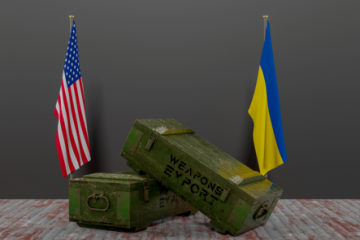
Pacifism as pragmatism: Brazil’s stance on the war in Ukraine
Since the beginning of Russia’s war on Ukraine, Brazil, then still under Bolsonaro’s government, has maintained an official position of neutrality. Under Lula’s administration, this position did not change, frustrating many policymakers in the Global North. So what explains Brazil’s stance on the war in Ukraine? Dawisson Belém Lopes argues that Brazil’s position must be understood against the backdrop of its constitutionally enshrined pragmatic pacifism and diplomatic tradition. Brazil’s diplomatic history and foreign policy tenets Brazil has not always been a pacifist nation in international affairs. At the beginning of the 19th century, when the country gained independence from Portugal, the Brazilian elite was deeply concerned about maintaining the country’s territorial integrity. During this period, interstate wars were fought, particularly …

The Need to Institutionalise US Support for Ukraine in the Face of Electoral Uncertainty
As storm clouds gather on the horizon, the future of US support for Ukraine remains uncertain. Despite overall high levels of support among the American public, questions over how much money to commit to Ukraine and the looming uncertainty of the next US election cast doubt on the extent to which the US–the largest overall aid donor to Ukraine–can continue to provide support. Growing concerns about accountability and transparency raise further doubts about continuing such substantial support, especially with no end to the conflict in sight. Ultimately, in order to maintain the current level of US support for Ukraine, aid flows need to become institutionalised and predictable. This would allow for more strategic long-term planning on behalf of the US …

Review of Sehenden Auges: Mut zum Strategischen Kurswechsel (With Eyes Wide Open: The Courage for a Strategic Course Change) by Dr. Stefanie Babst
Just over a year after Russia’s invasion of Ukraine in February 2022, Dr. Stefanie Babst, who has held several senior positions at NATO, including heading its Strategic Foresight Team from 2012 to 2020, has published her latest book, Sehenden Auges: Mut zum Strategischen Kurswechsel (With Eyes Wide Open: The Courage for a Strategic Course Change). The book is an important call for critical reflection and course correction among NATO partners and a plea for the West to continue to support Ukraine, not least in its own interests. The first part of the book contextualises Russia’s war on Ukraine. The author explains Putin’s rise to power, the workings of his power apparatus, and Moscow’s strategic objectives. Babst provides the reader with …









